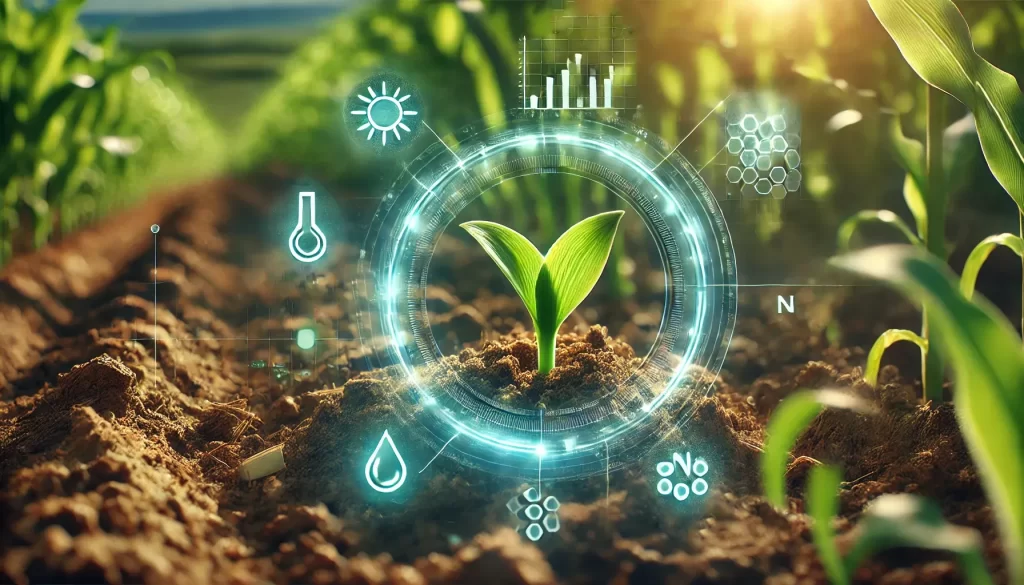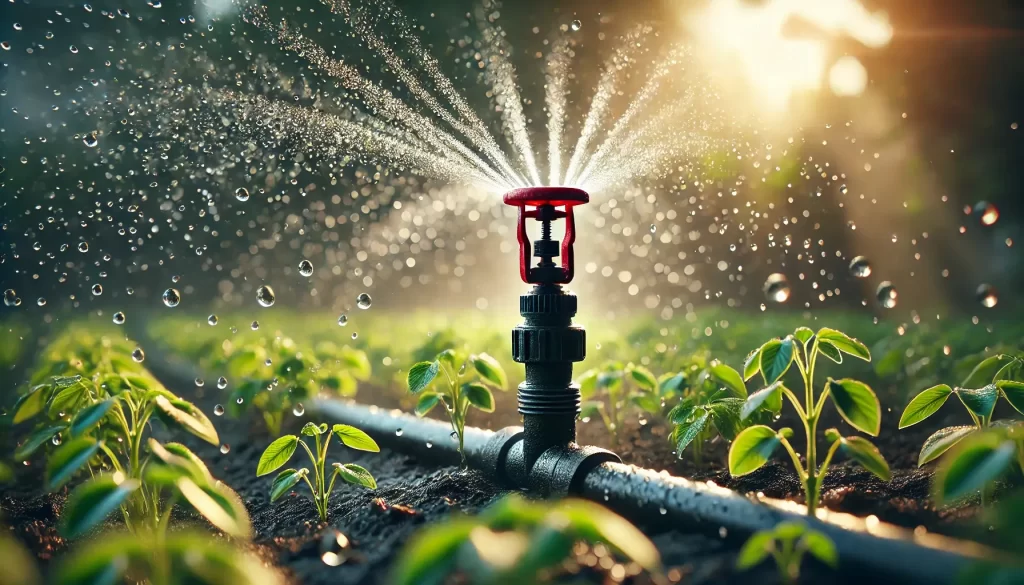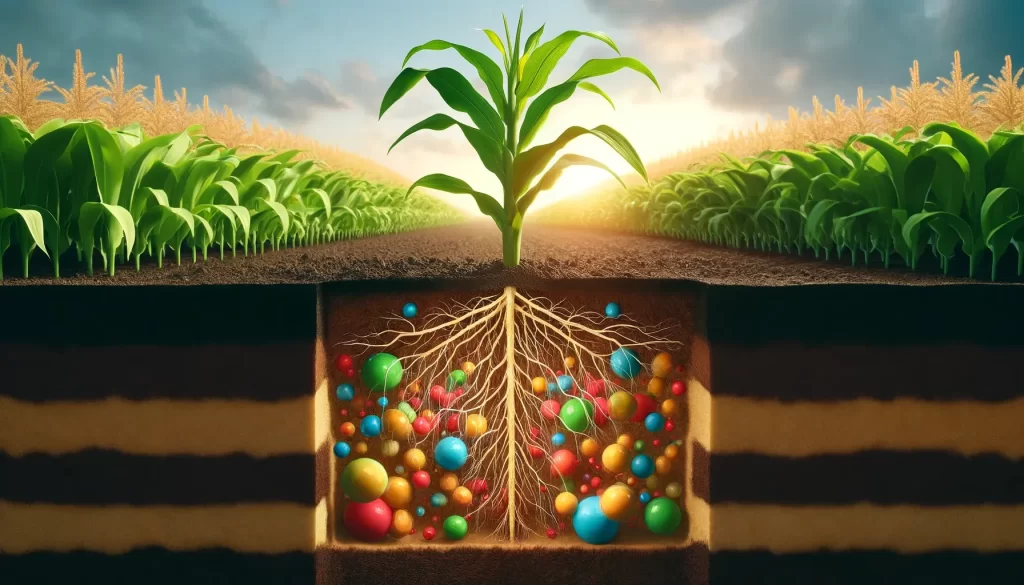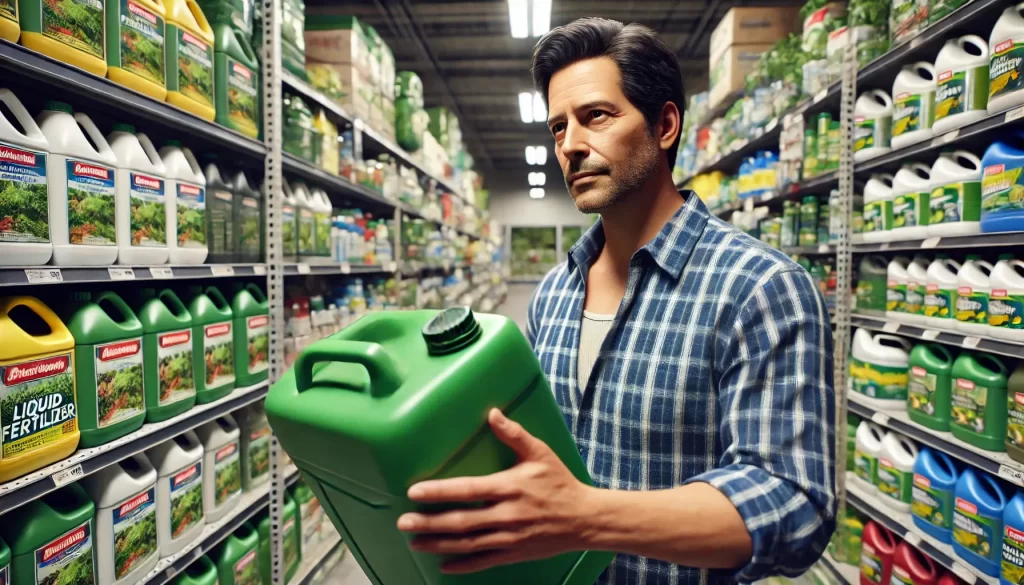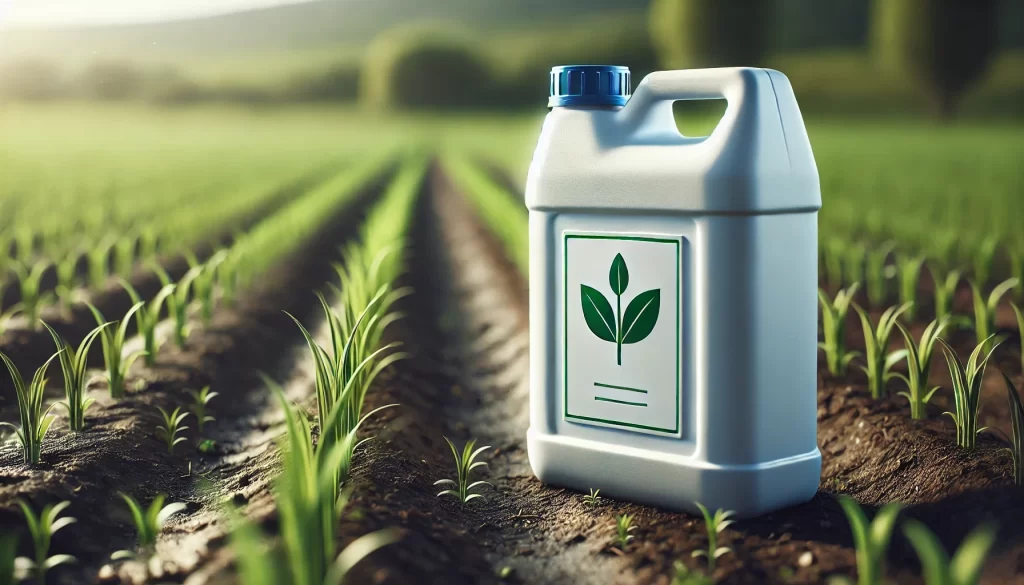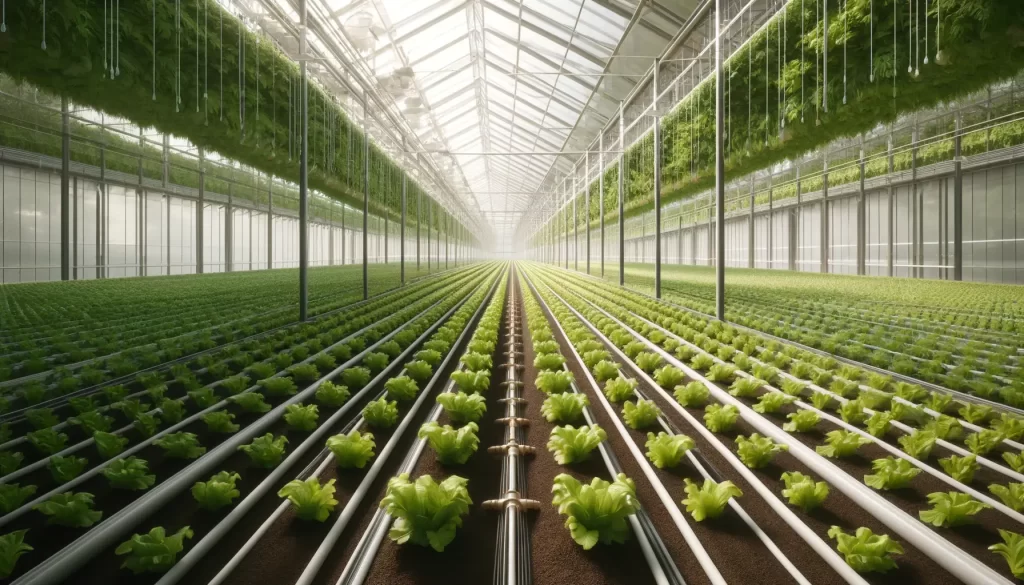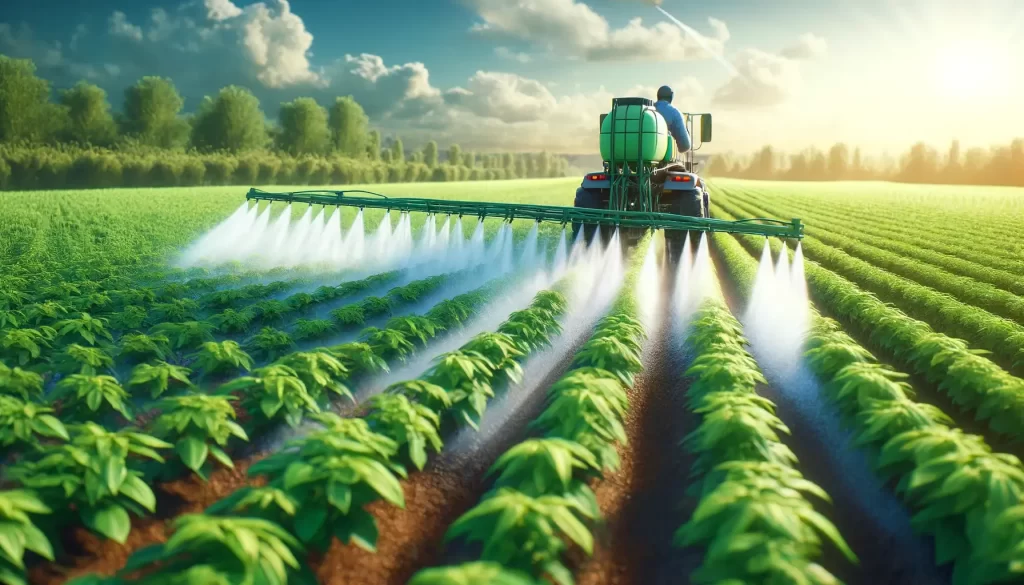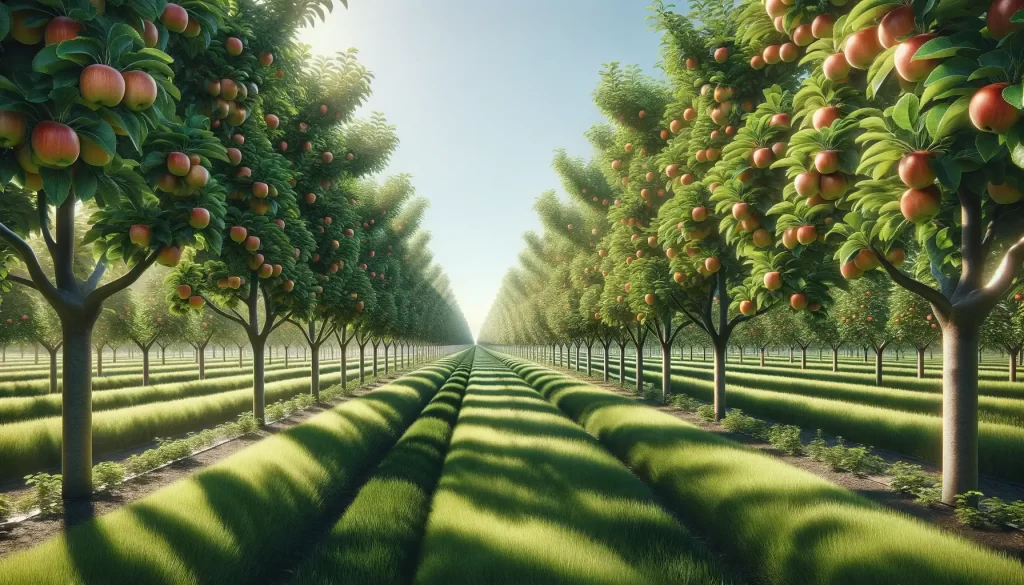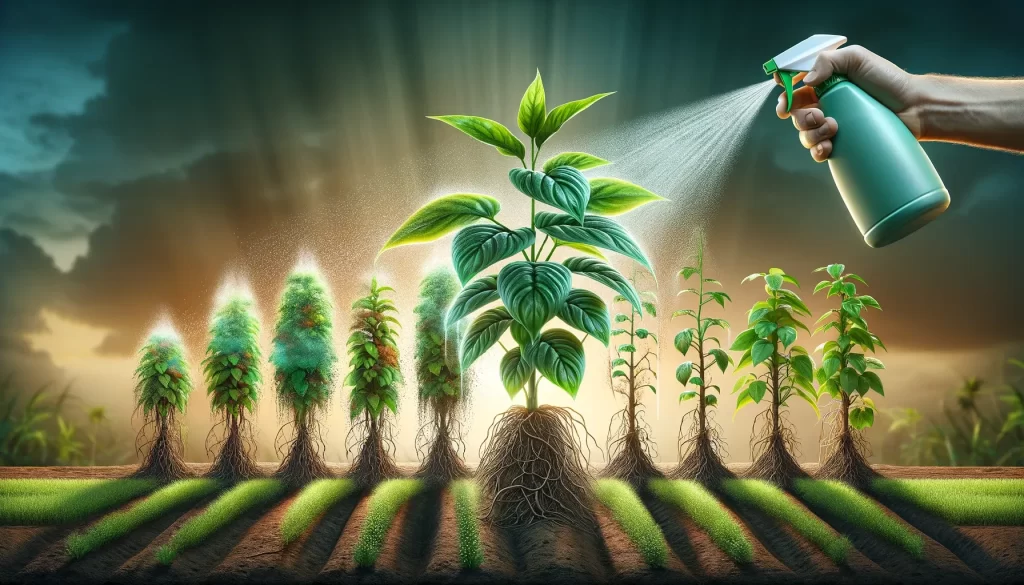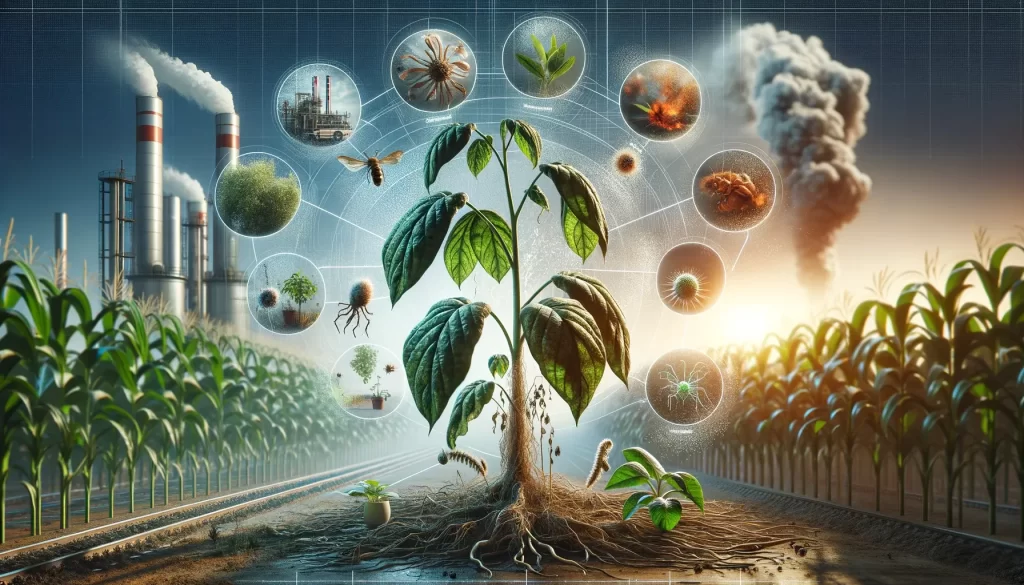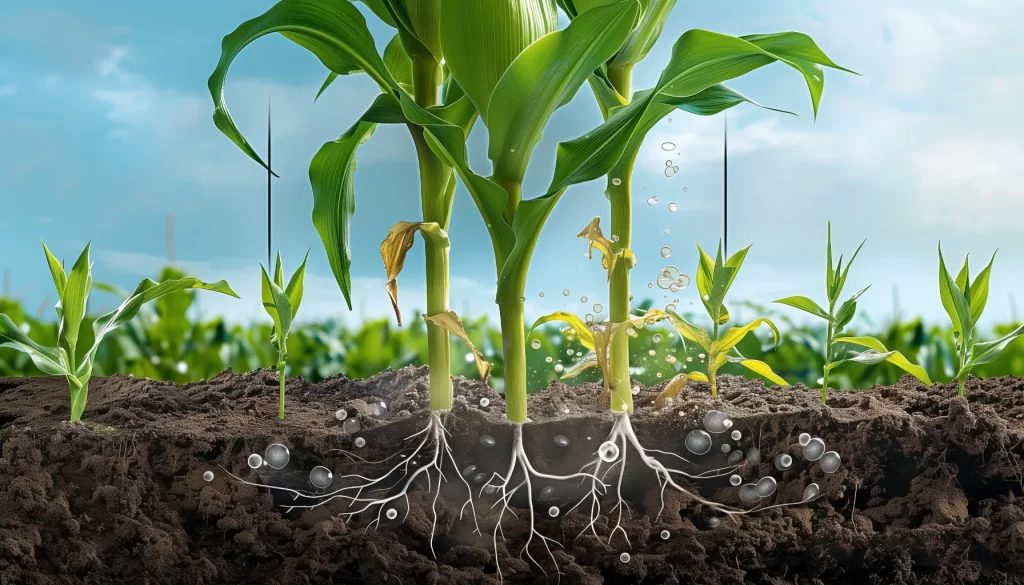What is Precision Agriculture?
Precision agriculture is a modern agricultural management system that aims to minimize environmental impact while increasing efficiency in agricultural production. This system is based on individual monitoring and management of each point of the agricultural land. Precision farming practices use a variety of technologies and methods to obtain detailed information about soil and plant health. In the light of this information, operations such as fertilization, irrigation, weed control and disease management are carried out precisely.
What is the Role of Liquid Fertilizers in Precision Agriculture?
Liquid fertilizers play an important role in precision farming practices. Liquid fertilizers have many advantages over solid fertilizers:
- Faster and easier absorption: Liquid fertilizers are absorbed more quickly and easily by plants because they are water-soluble. This allows nutrients to reach the plant faster and the plant to develop faster.
- More even distribution: Liquid fertilizers can be easily applied via irrigation systems, allowing a more even distribution into the soil. In this way, plants are provided with more equitable access to nutrients.
- Less waste: Liquid fertilizers can be applied in the amount needed and only to the area needed. This minimizes fertilizer waste and reduces damage to the environment.
- Better control: Liquid fertilizers offer greater control in terms of dosing and application methods. This allows precise adjustment of the nutrients needed by the plant.
Use of Liquid Fertilizer in Precision Agriculture
Different Types of Liquid Fertilizer and Their Properties
Liquid fertilizers are available in various types where nutrients are present in different proportions and in different forms. The most commonly used types of liquid fertilizer are:
- Nitrogenous liquid fertilizers: Contain the nitrogen element necessary for plant growth and development.
- Phosphorus liquid fertilizers: Contains the element phosphorus, which is necessary for the development of plant roots and flowering.
- Potassium liquid fertilizers: Contains the element potassium, which increases the plant’s resistance to diseases and improves fruit quality.
- Liquid fertilizers containing micronutrients such as zinc and iron:Contain micronutrients necessary for the healthy development of the plant.
Liquid fertilizers can also be classified according to their properties such as concentration of nutrients, water solubility and pH value.
How Liquid Fertilizers Can Be Used in Precision Agriculture Applications
Liquid fertilizers can be used in precision farming applications in a variety of ways:
- Application with irrigation systems: Liquid fertilizers can be mixed with irrigation systems and applied to the soil. This method ensures that liquid fertilizers are evenly distributed throughout the soil.
- Foliar application: Liquid fertilizers can be applied by spraying on the leaves of the plant. Foliar application ensures faster absorption of nutrients by the plant.
- Fertigation: Liquid fertilizers can be applied by mixing with irrigation water and using drip irrigation or spray irrigation systems. Fertigation allows nutrients to reach the plant’s roots directly.
The application frequency and dosage of liquid fertilizers vary depending on the soil type, plant type and nutrient needs of the plant.
Dosing and Application Methods of Liquid Fertilizers
Dosing and applying liquid fertilizers is very important in precision agriculture practices. Applying liquid fertilizers at the right dose and at the right time helps the plant meet its nutritional needs and achieve the highest yield.
Various methods can be used for dosing liquid fertilizers:
- Manual dosing: Liquid fertilizers can be dosed using manual pumps or measuring cups
- Automatic dosing systems: There are systems that provide automatic dosing of liquid fertilizers. These systems provide greater control and precision in precision agriculture.
Various methods can also be used to apply liquid fertilizers:
- Irrigation systems: Liquid fertilizers can be mixed with irrigation systems and applied to the soil.
- Foliar application: Liquid fertilizers can be applied by spraying on the leaves of the plant.
- Fertigation: Liquid fertilizers can be applied by mixing with irrigation water and using drip irrigation or spray irrigation systems.
For more information about dosing and application methods of liquid fertilizers, you can consult Greenlive’s experts.
Technology Integrated Liquid Fertilization Systems
In precision farming applications, various technologies can be used to further optimize liquid fertilization:
- Soil moisture sensors: Soil moisture sensors monitor the moisture level in the soil and can automatically adjust the time and dose of liquid fertilization based on this information.
- Plant stress sensors: Plant stress sensors monitor the stress level in the plant and can automatically adjust the time and dose of liquid fertilization based on this information.
- GPS systems: GPS systems can provide more precise application of liquid fertilizers to specific areas of the field.
Technology-integrated liquid fertilization systems can provide greater efficiency and sustainability in precision farming practices.
Benefits of Precision Agriculture Practices
Precision farming practices have many benefits:
- Productivity increase: Precision farming practices can significantly increase agricultural productivity through proper nutrition, irrigation and weed control.
- Reducing environmental impact: Precision farming practices help reduce environmental impact by reducing fertilizer and water waste and preventing soil erosion.
- Sustainable agricultural practices: Precision agricultural practices help protect food security for future generations by ensuring the sustainability of agricultural production.
- Savings in irrigation and fertilization: Precision agriculture practices help reduce agricultural production costs by providing savings in irrigation and fertilization.
- Better product quality: Precision farming practices can lead to better product quality and higher product prices.
Conclusion
Precision agriculture practices are a modern agricultural management system that aims to minimize environmental impact while increasing efficiency in agricultural production. Liquid fertilizers play an important role in precision farming practices. The fast and easy absorption, equal distribution and precise dosing of liquid fertilizers can provide greater efficiency and sustainability in precision farming practices.
Greenlive offers liquid fertilizers specially developed for precision agriculture applications. Greenlive liquid fertilizers are produced from high quality raw materials and contain all the nutrients the plant needs. With Greenlive liquid fertilizers, you can increase your productivity and profitability by applying precision farming practices in your field.
Step into precision agriculture with Greenlive, invest in the future!
Frequently Asked Questions (FAQ)
About Precision Agriculture and Liquid Fertilizers
1. What is precision agriculture?
Precision agriculture is a modern agricultural management system that aims to minimize environmental impact while increasing efficiency in agricultural production. This system is based on individual monitoring and management of each point of the agricultural land. Precision farming practices use a variety of technologies and methods to obtain detailed information about soil and plant health. In the light of this information, operations such as fertilization, irrigation, weed control and disease management are carried out precisely.
2. What are liquid fertilizers?
Liquid fertilizers are types of fertilizers that contain nutrients in water-soluble form. Liquid fertilizers have many advantages over solid fertilizers:
- Faster and easier absorption: Liquid fertilizers are absorbed more quickly and easily by plants because they are water-soluble. This allows nutrients to reach the plant faster and the plant to develop faster.
- More even distribution: Liquid fertilizers can be easily applied via irrigation systems, allowing a more even distribution into the soil. In this way, plants are provided with more equitable access to nutrients.
- Less waste: Liquid fertilizers can be applied in the amount needed and only to the area needed. This minimizes fertilizer waste and reduces damage to the environment.
- Better control: Liquid fertilizers offer greater control in terms of dosing and application methods. This allows precise adjustment of the nutrients needed by the plant.
3. What benefits does the use of liquid fertilizers provide in precision agriculture?
The use of liquid fertilizers in precision agriculture provides many benefits:
- Productivity increase: Liquid fertilizers increase productivity by allowing the plant to access nutrients faster and easier, thanks to their fast and easy absorption and equal distribution.
- Reducing environmental impact: Less waste and better control of liquid fertilizers helps reduce environmental pollution caused by fertilization.
- Sustainable agricultural practices: The efficiency and environmental friendliness of liquid fertilizers ensure the sustainability of agricultural production.
- Savings in irrigation and fertilization: Applying liquid fertilizers in the required amount and only to the needed area provides savings in irrigation and fertilization.
- Better product quality: Liquid fertilizers help achieve better product quality by providing all the nutrients the plant needs.
4. What type of liquid fertilizers should I use?
The type of liquid fertilizer you should use depends on the soil type, plant type, and the plant’s nutritional needs. Therefore, it is important to have a soil analysis and consult an agricultural engineer before choosing liquid fertilizer.
5. How should I apply liquid fertilizers?
The application frequency and dosage of liquid fertilizers vary depending on the soil type, plant type and nutrient needs of the plant. Liquid fertilizers can be applied by irrigation systems, foliar application or fertigation method. Please consult Greenlive’s experts for the correct application of liquid fertilizers.



